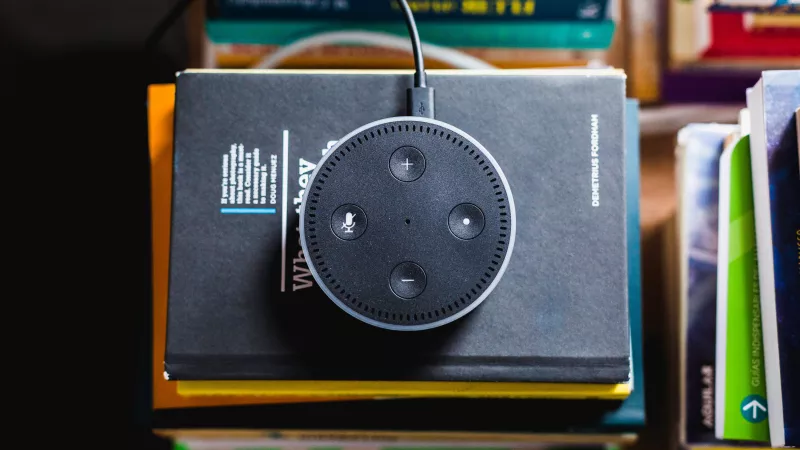How to Use Amazon Echo as Your Home Security System

If you’re renting, you may not be able to install a traditional wired security system—and if you live in a small space, you probably won’t need to. Instead, consider building your own security system piecemeal with an Amazon Echo device as the brains of the operation. Amazon’s Alexa integrates with literally thousands of devices that increase convenience and security, so you can pick and choose the cameras, locks, lights, and sensors you need, and then enable the related skills on your Echo.
If you have anything below an Echo Plus, which has more built-in smart home functionality than other Amazon products, keep in mind that some of Alexa’s skills might have to redirect your commands to a separate hub or bridge that talks to your security devices. You’ll connect your smart devices to the hub or bridge, and then connect that to your Amazon Echo device, rather than pairing your smart devices directly with the Echo.
And while an Amazon Echo Plus can serve as a smart hub, not every device will integrate seamlessly with it. If a smart home gadget requires a separate hub, you may have to say “Alexa, ask Kevo to unlock my door” instead of “Alexa, unlock my door.” In the case of some devices—like your Philips Hue lightbulbs—you’ll want to use the Philips Hue Bridge anyway to unlock their full capabilities (like setting up specific lighting scenes, for example).
That in mind, here are four ways Alexa can help secure your home.
Turn your lights on and off
There’s a way to incorporate Alexa in every room in your house, but perhaps the simplest and most useful smart home function is voice control over your lights. We have Philips Hue bulbs throughout our apartment, and we haven’t had to flip a light switch in almost a year. It’s way easier to say “Alexa, turn on the hallway light” than to fumble for a switch or blindly stumble to the bathroom.
From a security standpoint, you can set up smart lights to mimic regular routines when you’re out of town so it looks like you’re actually home to would-be burglars —and with the ability to turn your lights on and off remotely, you’ll never have to arrive to a dark house again.
To get started, simply replace your existing bulbs with Philips Hue bulbs in as many lamps and fixtures as you’d like, and connect the Philips bridge to Alexa. From there, you can group specific lights—multiple lamps in your bedroom or living room and hallway bulbs—and control brightness, color, and routines using the Alexa app, Philips Hue skill, or IFTTT.
Routines are particularly useful for security when you’re out late or on vacation. Automatic timers are one way to fake your presence at home, but lights that turn on and off at exactly the same times every day are a big giveaway. Hue Labs has a formula called advanced presence mimicking that switches bulbs on when you normally come home from work and off around bedtime—but with randomness to make the routine look more natural. This means that if you generally arrive around 5pm, your lights may go on at 4:57pm one evening and 5:13pm the next.
To set this up, you’ll have to log in to Hue Labs via your Philips Hue app (found under the Explore tab) or your browser. From there, you can set the formula to run for a specific date range or when certain users are present or absent. To activate the routine once you’ve set the parameters, you can also say, “Alexa, turn on advanced presence mimicking.”
A similar Labs formula can mimic the lights from your TV so it looks like someone is home and binge-watching Netflix.
Lock your front door
If you often worry that you forgot to lock your front door (*raises hand*), a smart lock is one way around the problem. You can check the status of your door lock from your smartphone; lock and unlock a door remotely; and let your dog walker, delivery service, or friend inside when you’re not around. (They also arguably haven’t come far enough in terms of security, so be aware of the pros and cons before you ditch your analog lock.)
Several smart lock manufacturers including Kwikset, Schlage, Yale, and August make devices that integrate with Alexa and voice commands. So you could say, “Alexa, lock my front door” or “Alexa, is my front door locked?” and your Echo would connect to your device or reply with a status update—useful, if you’re in the shower and you suddenly can’t remember if you locked the front door or not.
Source: https://lifehacker.com